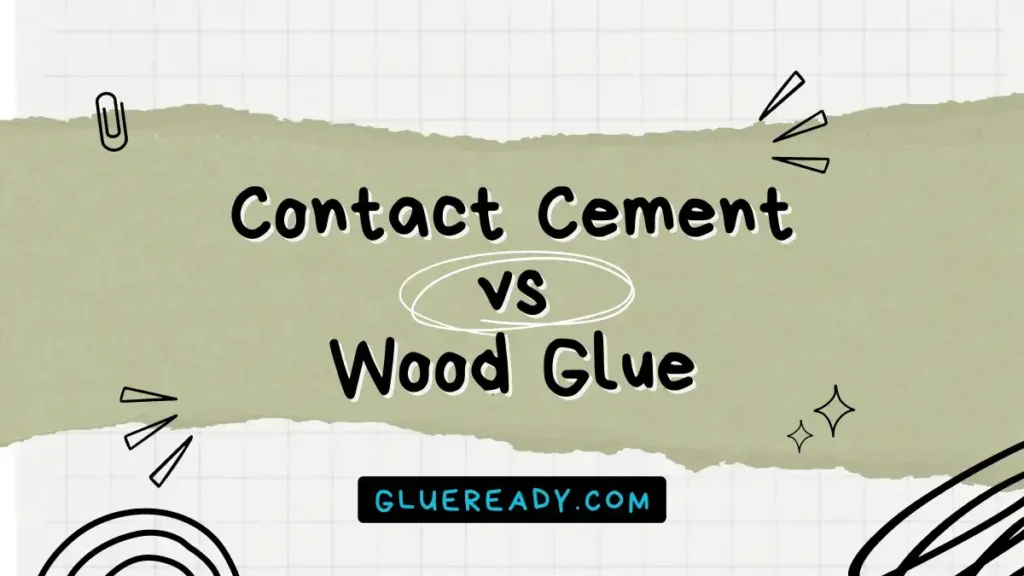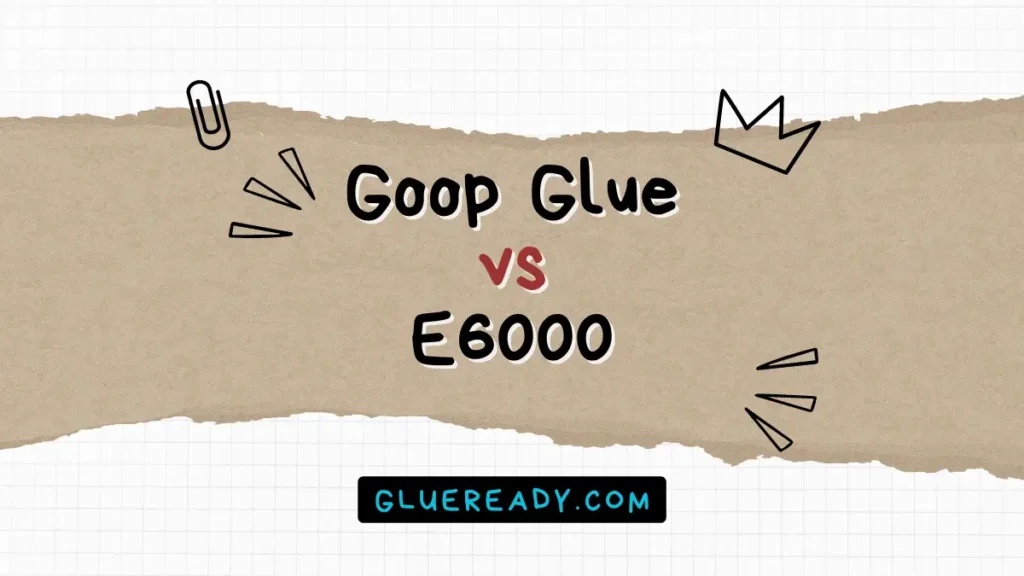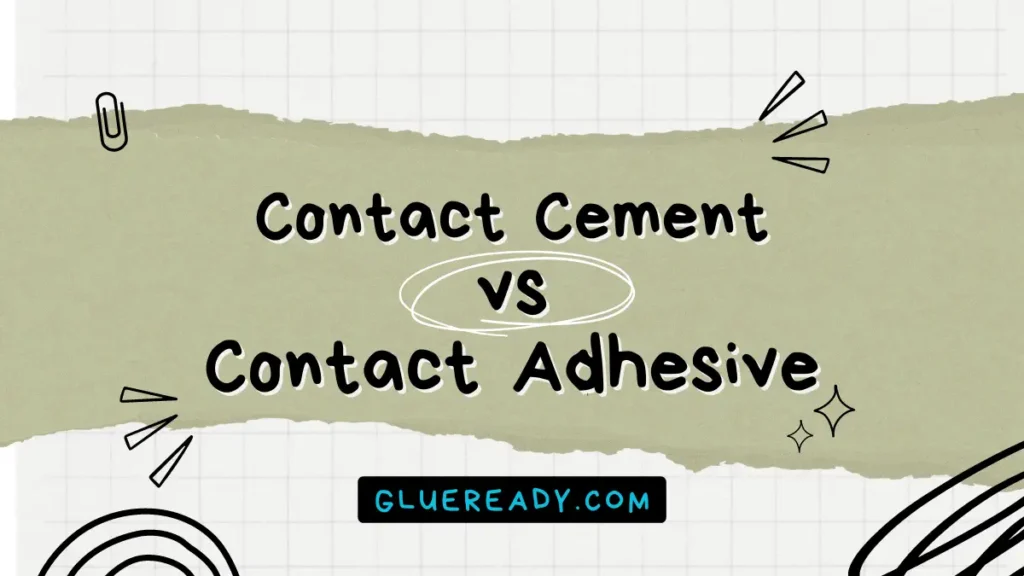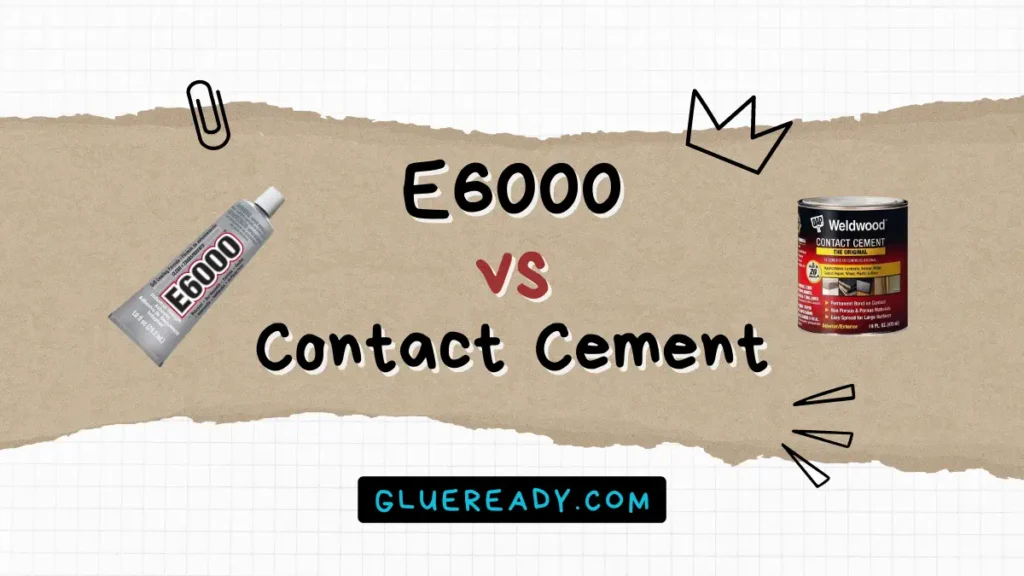PVC Glue vs Cement | In-Depth Comparison

PVC glue and PVC cement are two options that are often confused, but they have distinct differences and applications.
Mainly, PVC glue bonds the surfaces of PVC pipes and fittings together, while PVC cement dissolves and welds them together.
In this article, I will compare PVC glue vs cement and help you understand which one to use for your project.
What is PVC Glue?
PVC glue is a type of adhesive that is designed to bond the surfaces of PVC pipes and fittings together.
It is usually a clear or white liquid that comes in a squeeze bottle or a tube. It works by creating a chemical bond between the PVC materials, without melting or fusing them together.
PVC glue is ideal for small repairs and low-stress joints, such as those in furniture, crafts, or decorative items. It is also easy to apply and remove, as it does not create a permanent weld.

Read More: Types of PVC Glue
What is PVC Cement?
PVC cement is a type of adhesive that is more than just a glue.
It is actually a solvent-based welder that dissolves some of the PVC of each piece, intermingling it before setting the result. When done well, it creates a bond that requires cutting to remove.
PVC cement is recommended for large projects and high-stress joints that require a watertight seal, such as those in plumbing, irrigation, or drainage systems.
It is also faster and stronger than PVC glue, as it can fully cure in 15 minutes and form a molecular bond between the PVC components.

PVC Glue vs Cement Comparison Table
| Feature | PVC Glue | PVC Cement |
| Chemical Composition | Solvent-based adhesive | Solvent that dissolves the surfaces of PVC pipes and fittings |
| Appearance | white | Clear, gray, or blue |
| Drying Time | Longer, can take up to 24 hours to fully cure | 15 minutes to fully cure |
| Usage | Limited to small repairs or low-stress joints | Use for high-stress joint or a large repair |
| Watertight Seal | Not recommended for projects requiring a watertight seal | Ideal for creating watertight seals |
What Differs PVC Glue and PVC Cement?
PVC glue and PVC cement are both effective adhesives for bonding PVC pipes and fittings, but they serve different purposes.
Here are some of the main differences between them:
Strength
Since PVC cement fuses the pieces together rather than just sticking them together, it creates a stronger bond than PVC glue. PVC cement can withstand higher pressures and stresses than PVC glue.
Appearance
PVC glue usually comes in clear or white colors, while PVC cement comes in various colors, such as purple, blue, or orange. The color of the cement helps to indicate whether the joint has been properly primed and bonded.
Chemical Composition
PVC glue is a solvent-based adhesive. In contrast, PVC cement creates a molecular bond between PVC pipes and fittings by dissolving their surfaces.
Watertight Seal
PVC cement creates a watertight seal that prevents leaks and corrosion, while PVC glue does not guarantee a watertight seal and may allow water to seep through the joint.
Drying Time
There is typically a longer drying time for PVC glue than for PVC cement. For PVC glue to fully cure, it can take up to 24 hours, while for PVC cement it takes 15 minutes.
How to Choose Between PVC Glue and PVC Cement?
The choice between PVC glue and cement depends on the type and size of your project, as well as the level of stress and pressure that the joint will be exposed to.
Here are some general guidelines to help you decide:
Use PVC glue if:
- You are working on a small or simple project that does not involve water or high pressure.
- You want to have more flexibility and control over the alignment and adjustment of the pipes or fittings.
- You want to be able to remove or reposition the pipes or fittings later.
- You want to save money and time on buying and applying the adhesive.
Use PVC cement if:
- You are working on a large or complex project that involves water or high pressure.
- You want to have a permanent and secure connection between the pipes or fittings.
- You want to prevent leaks, cracks, or bursts in the pipes or fittings.
- You want to use CPVC pipes or fittings, which are compatible with PVC cement but not with PVC glue.
Frequently Asked Questions (FAQs)
Is It Possible to Use PVC Cement as A Glue?
Yes, PVC cement can be used as a glue, but it is not recommended. PVC cement is a type of solvent that dissolves the surfaces of PVC pipes and fittings, forming a molecular bond between them.
It is also called PVC glue, but it does not work like a typical adhesive. Instead, it breaks down and chemically bonds two PVC parts together, making them inseparable.
Is PVC Glue Permanent?
Yes, PVC glue is a permanent solution for bonding two PVC surfaces together. As the glue cures, it chemically bonds with PVC, creating a strong and durable bond.
Is PVC Cement Stronger Than Super Glue?
PVC cement and super glue are two different types of adhesives that are used for different purposes.
PVC cement is a solvent that dissolves the surfaces of PVC pipes and fittings, forming a molecular bond between them.
Super glue is a cyanoacrylate adhesive that can bond a variety of materials, such as ceramic, glass, metal, wood, and many others.
Therefore, if you are looking to bond PVC materials together, you should use PVC cement instead of super glue.
Final Thoughts
Hopefully, this PVC Glue vs Cement comparison has helped you a lot to understand the differences between them.
The characteristics and applications of PVC glue and PVC cement are different, but they can both be used to bond PVC pipes and fittings.
You should use PVC glue for small repairs and low-stress joints, and if you need a watertight seal on a high-stress joint or a large repair, you should use PVC cement.
To use them properly, you need to follow some basic steps such as cutting, cleaning, priming, applying, joining, and curing your PVC materials.
By doing so, you can ensure a strong and durable bond that will last for a long time.







